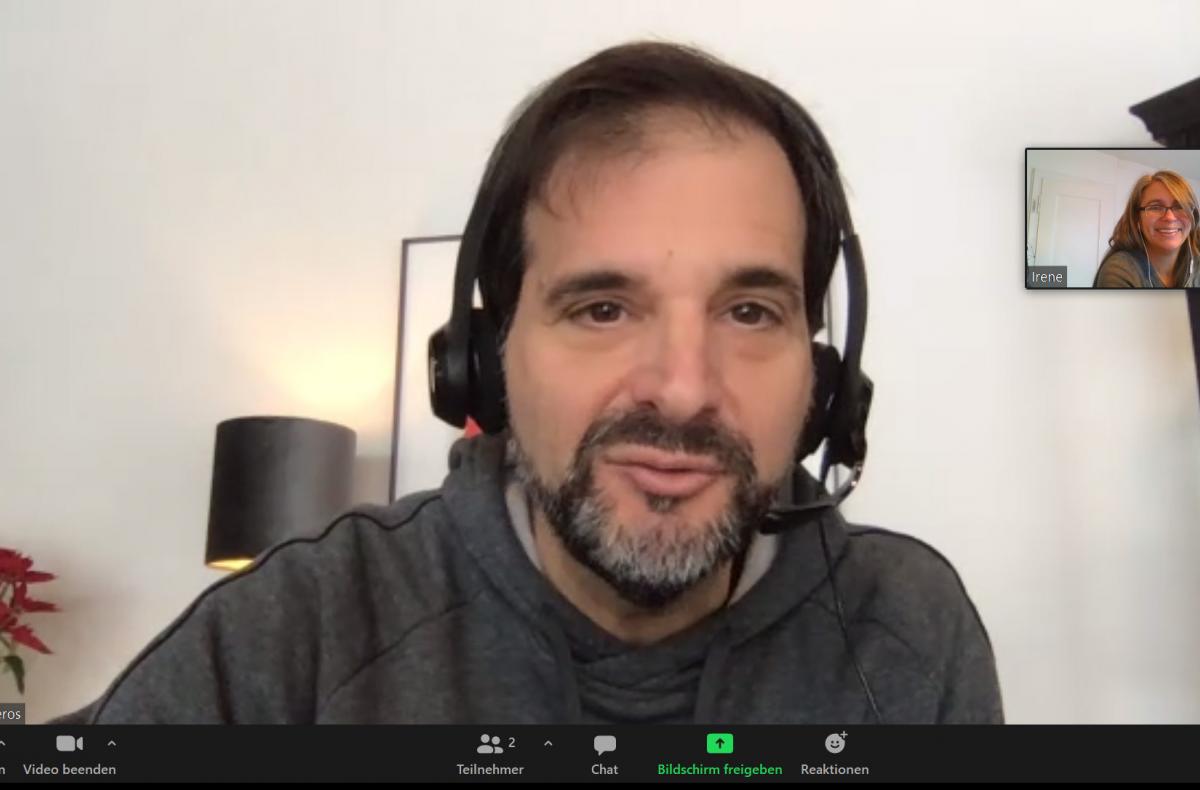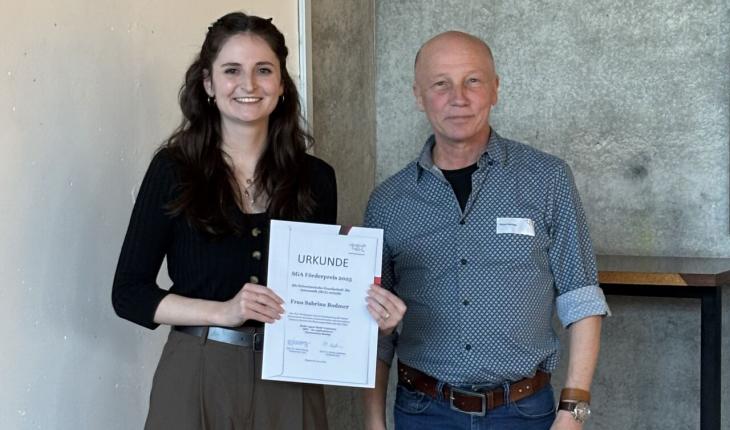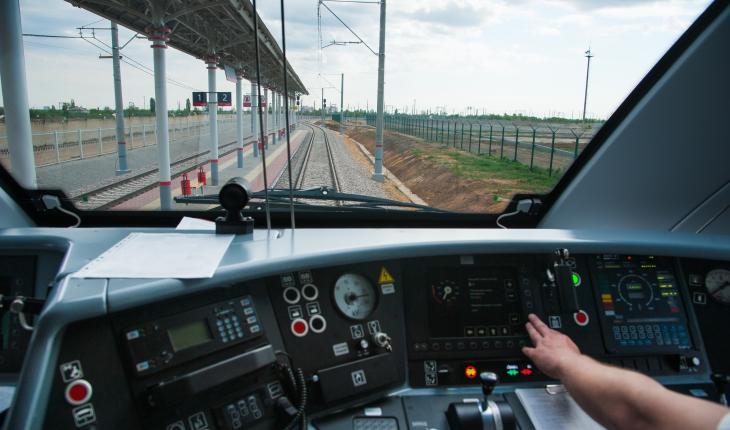"If we pull together, we achieve more"

Where does Switzerland currently stand in terms of research into digitalization, automation and control?
John Lygeros: I think Switzerland is one of the world leaders in this area. This is especially true for the core area of automation and control that is at the heart of the NCCR Automation, but also for related areas such as Artificial Intelligence, robotics and optimisation as well as application areas such as energy, or industrial systems. Research and development on these topics take place not only in our top-notch universities and universities of applied sciences, but also in companies ranging from start-ups to global players. I think it is fair to say that, although a small country, Switzerland punches well above its weight in this area, with a footprint comparable to much bigger nations. Having said that, I still think we can do more …
You say we can still do more. Where does the NCCR Automation come in to further enhance Switzerlands position?
One issue is fragmentation. Swiss efforts in automation are spread across many institutions, including the Federal Institutes of Technology, universities, universities of applied sciences and the industry. This makes coordination difficult, risking duplication of efforts and repeated false starts. It is also not great for international visibility: although we are a world leader we are not always perceived as one.
One motivation for putting together this NCCR was to coordinate research and technology transfer activities nationwide, improve the flow of information across institutions, exploit synergies, and make technology transfer more effective. If we pull together, we can achieve more and also become more visible nationally and internationally.
Another motivation was to foster the young talent needed to remain at the forefront of innovation in automation. Here effort is needed across the education chain, from attracting new talent to automation and training young engineers, all the way to providing continuing education for experienced practitioners to help them stay abreast of the latest developments. Our NCCR plans activities on all these levels. In the process we also hope to increase the diversity in our field. For example, women are globally under-represented in engineering, and automation is no exception. This is a major talent pool that the field can benefit from while at the same time leveraging the proven benefits of diversity.
For example, women are globally under-represented in engineering, and automation is no exception. This is a major talent pool.
Can you name some specific research projects you're working on at the moment?
The easiest starting point are the application areas fostered by the NCCR, for example energy management. Here one needs to make high level, long-term decisions on how to use or store renewable energy, all the way down to split-second decisions to ensure the stability of the electricity grid; roughly speaking, to make sure that electricity at the right voltage reliably reaches the plugs in our homes. Clearly automating all these decisions represents a major challenge.
Addressing these challenges also requires the development of novel automation methodologies. Much of the research in my group (and the NCCR) deals with the mathematical foundations of automation and the computational tools to translate these to practice. One example is data driven control. Most of the current automation methods are based on mathematical models (the so-called “first principles models”). The models are used to ensure that automation works predictably and to identify its limits of operation. Thanks to digitalization, the increasing availability of data now makes it possible to complement this model-based thinking with new methods that rely on the data to make decisions. This holds the promise not only of improving the performance of existing automation systems, but also of reliably automating systems that are too complex or “messy” for first principles modelling. This methodological research is generally applicable. For example, in the NCCR we not only plan to look into energy systems, but also in future mobility and advanced manufacturing in “Industry 4.0”.
The NCCR plans to build a fully automated energy network in a municipality or a larger neighborhood starting around 2024 and test it in the field. How will this improve energy management compared to what we have today?
Considering that today’s energy networks work quite reliably, one can indeed question whether something more is actually needed. We feel that there is. One reason is the changes in the energy landscape and in particular the increased prevalence of renewable energy sources. The higher degree of uncertainty associated with renewable energy means that systems that worked reliably in the past will not necessarily do so in the future. Another reason is the continuously increasing need for efficiency and cost reduction, something that our automation methods based on optimization, are explicitly designed for. Finally, there is the issue of flexibility, the need to reorient and reshape operations as conditions change. With advanced automation methods, we can do this with limited investment in infrastructure, simply by adjusting algorithms - when we realign the system based on the trade-off between costs and CO2 emissions, or when we offer new services that take advantage of the flexibility of controllable loads, for example.
With advanced automation methods, we can reorient and reshape operations with limited investment in infrastructure, simply by adjusting algorithms.
From a business perspective, what opportunities do you see arising from the NCCR in Switzerland and how do you plan to facilitate these?
We plan to contribute through technology start-ups that are becoming increasingly important in the global corporate “ecosystem” in automation. Think for example of companies implementing solutions for autonomous cars, or drones, areas where some of our team members have already been very successful, also as entrepreneurs. The NCCR provides a support mechanism for our PhD students and postdoctoral researchers to explore the commercial potential of their ideas already at an early research stage, giving them the opportunity to hone their business skills. Moreover, in the area of energy automation we are planning to found a start-up to commercialize the results of the neighborhood scale demonstration that we just discussed.
The results of the NCCR also hold commercial value beyond start-ups of course. As I mentioned earlier, Swiss companies are among the world leaders in automation. Our team already has excellent relations with these global players that we will build on to enhance our technology transfer efforts.
Digitalization and automation also stir up fears in society. How does the NCCR deal with this?
It is indeed true that in public perception automation is sometimes controversial, as it evokes job security, privacy, legal, and even ethical concerns. For example, in the energy management systems that we discussed earlier, consumers may worry about what data the system operator is collecting about their energy “habits” and how they are using it, or what will happen if the automation system fails due to unexpected events or even a malicious cyber-attack. In the NCCR we plan to look into these questions by launching investigations, also with partners from the social sciences. After all, the full name of our NCCR is Dependable Ubiquitous Automation. Our aim is to build reliable, safe automation methods that will build trust in automation systems and help reassure the public about their operation. Our research on cyber-security and privacy in the energy domain is an example of our efforts to address these concerns.
Now it is up to us to make the most of it!
You said that the NCCR has changed your life and that of people around you. In what ways?
When it comes to those around me, you may want to ask my family, who have been suffering through my infatuation with the NCCR for already for quite some time. As for me, the NCCR has taken me beyond my comfort zone of research and education. I am discovering that organising something of this scale is a tremendous challenge. It also requires a broad range of skills, but thankfully by now we have a great, diverse team in place, with our co-director Gabriela, our manager Elise and the scientific coordinators Vahid and Frederik. Plus, despite the difficulties of the pandemic, with the Principal Investigators we have been able to put together a lively team of researchers with diverse backgrounds and great ideas. The sheer scale and talent pool of the NCCR provides a unique opportunity to do unique things. Now it is up to us to make the most of it!



